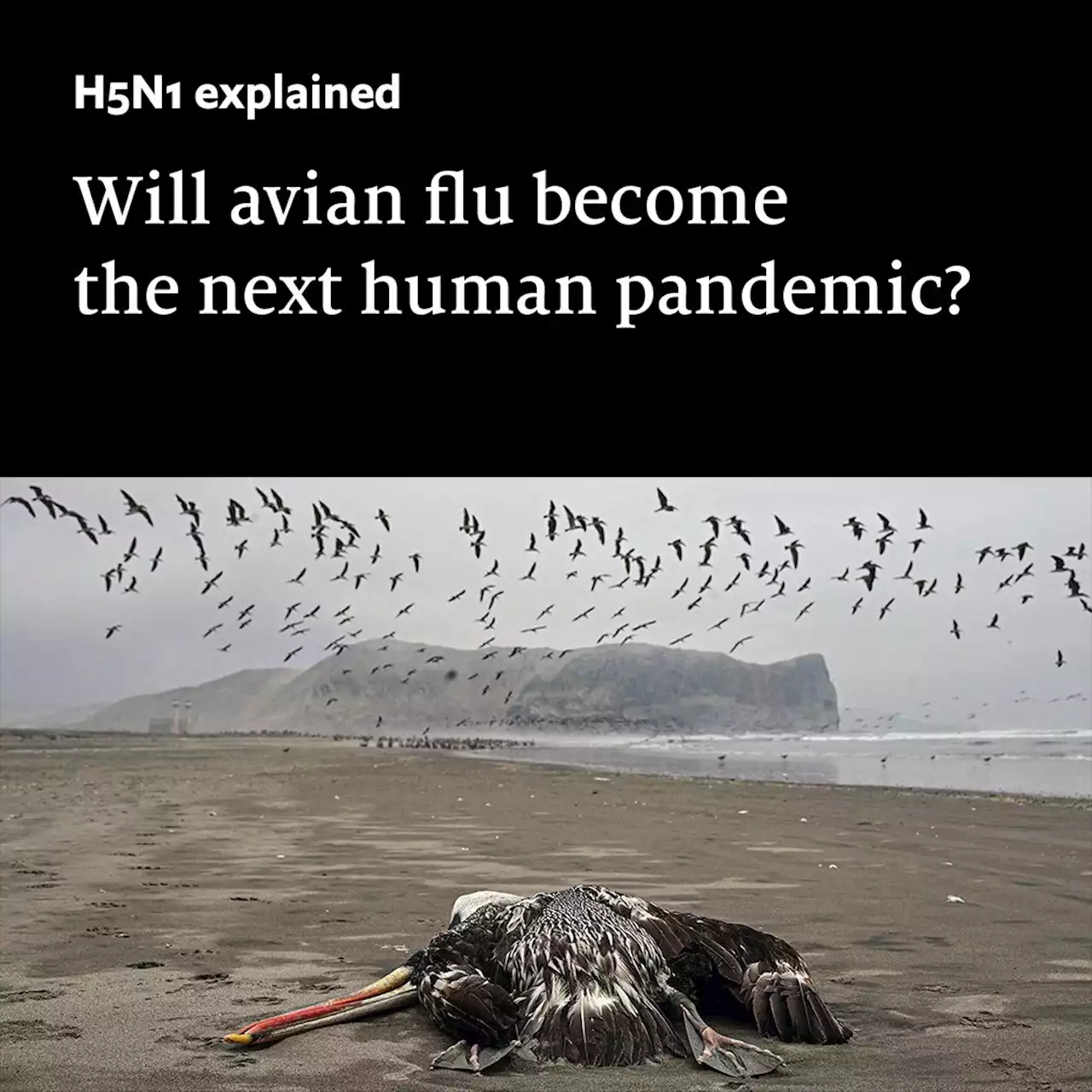The virus has spread from birds to mammals such as sea lions, foxes and otters. But these cases do not provide evidence that the virus is about to spill over into humans
recorded outbreak of avian influenza is tearing through populations of poultry and wild birds across the world. There are growing fears that it might pose a risk to humans, too. On February 8th Tedros Adhanom Ghebreyesus, the head of the World Health Organisation, warned that the world had to prepare for a possible bird-flu pandemic. How worried should humankind be?, a subtype of the influenza virus, from birds to mammals. In recent weeks Peru has reported the deaths of 585 sea lions from.
is not well adapted to infect the upper respiratory tract of mammals; people tend to contract it only after handling birds. Still, the widening range of species carrying the disease suggests that the threat is increasing. Dr Tedros said that the risk to humans is low, but added that it may not stay that way.
Before covid-19, it was widely believed that the next human pandemic would be caused by an influenza virus. The 1918 influenza pandemic, which is now known to have had genes of avian origin, killed about 50m people. Flu pandemics also occurred in 1957-58, 1968 and 2009. Though avian-flu cases in humans are rare, they can have devastating mortality rates. In 1997, following an outbreak in poultry in Asia, avian flu killed half of the 860 people it infected.
A particular worry would be mammal-to-mammal spread. Experts have not yet confirmed that the sea lions passed the virus between each other, rather than catch it from dead, infected seabirds. Mink-to-mink infections appear to have occurred at the Spanish fur farm, but the animals were culled and mammal-to-mammal transmission seems to be extremely rare.
Such bird-flu vaccines that exist do not inspire a strong immune response. Most are produced using an old method that involves incubating the vaccines in chicken eggs. This takes time. Dr Tedros’s warning should stimulate interest in modernising the manufacture of flu vaccines, as well as in stockpiling antiviral drugs.
United States Latest News, United States Headlines
Similar News:You can also read news stories similar to this one that we have collected from other news sources.
 MicroRNAs associated with diabetes in human pancreatic isletsIn a recent study published in the Proceedings of the National Academy of Sciences, researchers explored micro-ribonucleic acids (RNAs) associated with diabetes and related characteristics in human pancreatic islets.
MicroRNAs associated with diabetes in human pancreatic isletsIn a recent study published in the Proceedings of the National Academy of Sciences, researchers explored micro-ribonucleic acids (RNAs) associated with diabetes and related characteristics in human pancreatic islets.
Read more »
 How do cattle impact human vector-borne disease risk?Scientists from the United States have conducted a systematic review to understand whether cattle increase the risk of contracting vector-borne diseases by humans. The review is currently available on the medRxiv* preprint server.
How do cattle impact human vector-borne disease risk?Scientists from the United States have conducted a systematic review to understand whether cattle increase the risk of contracting vector-borne diseases by humans. The review is currently available on the medRxiv* preprint server.
Read more »
 Diverse monogenic subforms of human spermatogenic failure - Nature CommunicationsThe GEMINI consortium sequenced 1,000 cases of idiopathic male infertility and identified a plausible Mendelian cause in 20% of cases. The infertility genes can be grouped by expression pattern, facilitating their interpretation and follow-up.
Diverse monogenic subforms of human spermatogenic failure - Nature CommunicationsThe GEMINI consortium sequenced 1,000 cases of idiopathic male infertility and identified a plausible Mendelian cause in 20% of cases. The infertility genes can be grouped by expression pattern, facilitating their interpretation and follow-up.
Read more »
 Butyrate in human milk negatively associated with infant weight and BMIButyrate in human milk negatively associated with infant weight and BMI Acinetobacter Antiflammatory Baby Bacteria Breastfeeding Fermentatio Insulin Nutrients Obesity Pregnancy Nutrients_MDPI Cambridge_Uni MJPNI_Global ThisIsReckitt WUR
Butyrate in human milk negatively associated with infant weight and BMIButyrate in human milk negatively associated with infant weight and BMI Acinetobacter Antiflammatory Baby Bacteria Breastfeeding Fermentatio Insulin Nutrients Obesity Pregnancy Nutrients_MDPI Cambridge_Uni MJPNI_Global ThisIsReckitt WUR
Read more »
 Stefano Domenicali: F1 will pull out of deals where there are human rights issuesF1 has the right to scrap race deals it has based on human rights concerns, and Stefano Domenicali says he would follow through in doing so in future.
Stefano Domenicali: F1 will pull out of deals where there are human rights issuesF1 has the right to scrap race deals it has based on human rights concerns, and Stefano Domenicali says he would follow through in doing so in future.
Read more »
 Equatorial Guinea Confirms First Outbreak of Marburg Virus DiseaseThe World Health Organization says that Marburg, an Ebola-related virus, caused at least nine deaths in the Western African country
Equatorial Guinea Confirms First Outbreak of Marburg Virus DiseaseThe World Health Organization says that Marburg, an Ebola-related virus, caused at least nine deaths in the Western African country
Read more »
